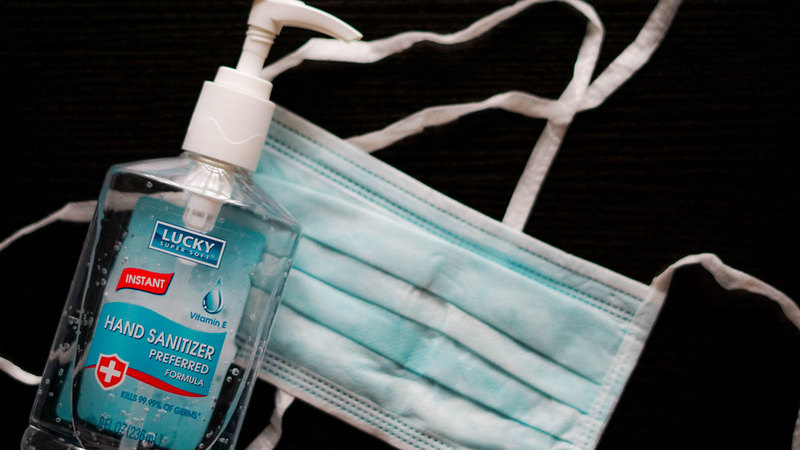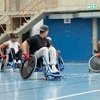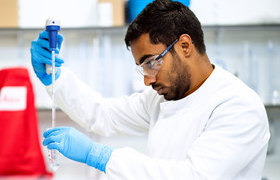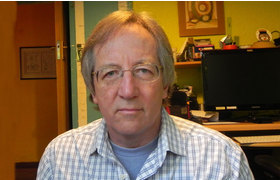‘Let science be in service of society’
14 May 2020 | Story Niémah Davids. Photo Unsplash. Read time 5 min.Keep calm and wash your hands. Cover your cough. Stay home.
These essential tips are critical to stave off the spread of the COVID-19 pandemic, and have also been included in a range of COVID-19 resources, produced by the Knowledge Translation Unit (KTU) at the University of Cape Town’s (UCT) Lung Institute, in a collective effort to educate low- and middle-income communities on COVID-19.
Produced in four of South Africa’s official languages – English, Afrikaans, isiXhosa and Sesotho – the project is spearheaded by the KTU, in partnership with the Western Cape Department of Health and local non-profit organisations (NPOs). Resources aim to equip communities and healthcare workers living and working in under-resourced areas in the country with important information on COVID-19 and ways to stop the spread of the virus.
The KTU is a research unit, first established in 2005 to provide primary care guidelines and training on respiratory diseases during the HIV pandemic. Since then, the unit has expanded its scope to support primary healthcare for all priority health conditions in South Africa and other low- and middle-income countries through education, research and service.
“We can now see that people are hungry for information in print.”
In the wake of the COVID-19 pandemic, KTU director, Professor Lara Fairall, said a plethora of resources were being developed on COVID-19 but weren’t necessarily reaching low-income communities. That’s when the KTU stepped in.
“We can now see that people are hungry for information in print; for tangible material that they can read and then convey to family members. And it’s often simple stuff like how to wear a mask and how best to clean a surface – things some take for granted.”
‘Take charge of your health’
Fairall said the KTU’s COVID-19 resources are provided in pamphlet, brochure and poster format and give community members the opportunity to “move out of a state of fear and to protect themselves and their health”.
Information includes how to stop the spread of the virus and the steps to follow for effective home-based care once a family member has tested positive for COVID-19. Resources are distributed via NPOs, community health workers and alongside humanitarian aid.
“This is community education and it’s taking people out of their comfort zones and empowering them to take ownership of their own health,” she said.
Resources will be “especially useful” to patients with chronic conditions whose access to healthcare facilities have been restricted as a result of the nationwide lockdown.
“The response has been overwhelmingly positive. In recent weeks our content has also cropped up in other parts of the country through NPOs there. This has been so very humbling and gratifying,” Fairall added.
Training the carer
Like community members, healthcare workers also have access to similar COVID-19 material in print.
Their learning materials illustrate basic hygiene principles, how best to manage anxiety levels during a stressful time, and guidelines on how to protect patients with chronic health conditions from COVID-19.
In addition, two COVID-19 online training modules have also been developed and draw on the KTU’s face-to-face training principles in an online setting by using case studies.
“We have been planning for years to take training into the online space and it’s been a steep learning curve. We’re trying to reach people (healthcare workers) who don’t ordinarily use their mobile devices to learn online,” she said.
“People learn through story and experience.”
Online training provides participants with a new innovative form of learning, and acts as an alternative means to access information. In order to replicate the clinic setting and the processes healthcare workers are familiar with, both modules have been designed with a person-centred approach in mind.
The training places a healthcare worker and a patient at the centre of a challenge and examines effective and efficient methods to navigate it.
“People learn through story and experience and this is what the online training does – it takes the health worker on a journey with the patient.”
Investing in communities
Education is a powerful tool to empower marginalised communities and is at the heart of the KTU’s work, Fairall noted.
“We have a deep investment in this province and in other communities around the country. This health emergency is going to require that all of us chip in and do what we can to help.”
She is proud that the COVID-19 resources have moved beyond South African borders to Nigeria and Ethiopia and have also made their way to Brazil where they are being localised to health services with the help of the KTU’s partner organisations.
“Science depends on society’s involvement in research in ways that often don’t provide immediate benefits to participants, generating solutions that are only scaled up years later. It is at moments like these we need to let science be in service of society. This is what we need to get right.”
COVID-19 resources are available from the Western Cape Government website.
 This work is licensed under a Creative Commons Attribution-NoDerivatives 4.0 International License.
This work is licensed under a Creative Commons Attribution-NoDerivatives 4.0 International License.
Please view the republishing articles page for more information.











